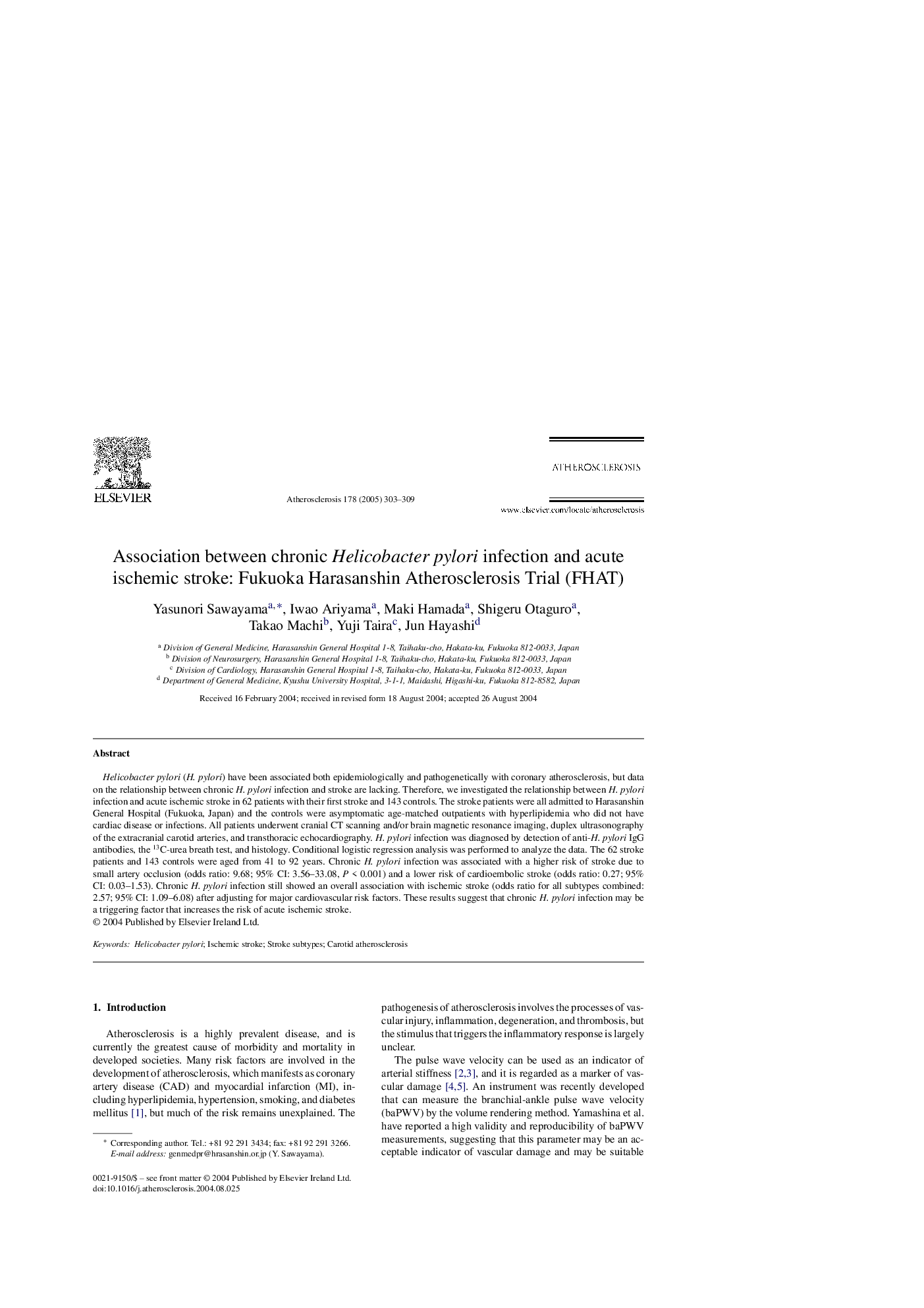| Article ID | Journal | Published Year | Pages | File Type |
|---|---|---|---|---|
| 9157939 | Atherosclerosis | 2005 | 7 Pages |
Abstract
Helicobacter pylori (H. pylori) have been associated both epidemiologically and pathogenetically with coronary atherosclerosis, but data on the relationship between chronic H. pylori infection and stroke are lacking. Therefore, we investigated the relationship between H. pylori infection and acute ischemic stroke in 62 patients with their first stroke and 143 controls. The stroke patients were all admitted to Harasanshin General Hospital (Fukuoka, Japan) and the controls were asymptomatic age-matched outpatients with hyperlipidemia who did not have cardiac disease or infections. All patients underwent cranial CT scanning and/or brain magnetic resonance imaging, duplex ultrasonography of the extracranial carotid arteries, and transthoracic echocardiography. H. pylori infection was diagnosed by detection of anti-H. pylori IgG antibodies, the 13C-urea breath test, and histology. Conditional logistic regression analysis was performed to analyze the data. The 62 stroke patients and 143 controls were aged from 41 to 92 years. Chronic H. pylori infection was associated with a higher risk of stroke due to small artery occlusion (odds ratio: 9.68; 95% CI: 3.56-33.08, P < 0.001) and a lower risk of cardioembolic stroke (odds ratio: 0.27; 95% CI: 0.03-1.53). Chronic H. pylori infection still showed an overall association with ischemic stroke (odds ratio for all subtypes combined: 2.57; 95% CI: 1.09-6.08) after adjusting for major cardiovascular risk factors. These results suggest that chronic H. pylori infection may be a triggering factor that increases the risk of acute ischemic stroke.
Related Topics
Health Sciences
Medicine and Dentistry
Cardiology and Cardiovascular Medicine
Authors
Yasunori Sawayama, Iwao Ariyama, Maki Hamada, Shigeru Otaguro, Takao Machi, Yuji Taira, Jun Hayashi,
